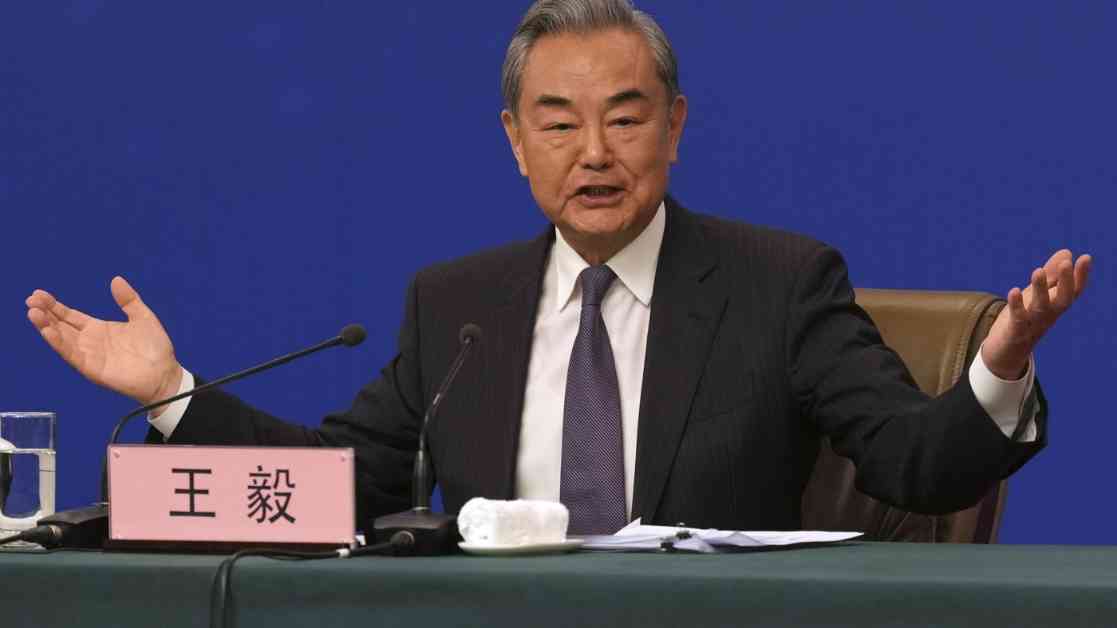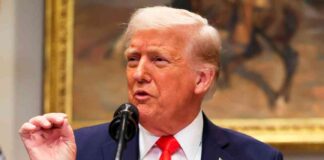Chinese Foreign Minister, Wang Yi, delivered a thought-provoking speech during a press conference at China’s annual parliamentary session, criticizing U.S. policies and emphasizing China’s global role. Amid an escalating trade war with the U.S., sparked by tariffs on Chinese imports and accusations regarding the opioid fentanyl, Wang’s statements aimed to challenge the status quo and redefine international relations. Let’s delve into five key points from his address:
## China’s Relationship with the U.S.
Wang Yi, a member of the elite Politburo and China’s Foreign Minister, did not mince words when addressing the strained ties between China and the U.S. His critique highlighted inconsistencies in U.S. policies and the need for mutual respect and trust in bilateral relations. Amidst tariff disputes and accusations regarding fentanyl, Wang emphasized the importance of goodwill and responsible diplomacy.
Wang’s assertion that science and technology should not be divisive tools underscored the need for collaboration and innovation. He called for a reevaluation of U.S. approaches, emphasizing the mutual benefits of cooperation over confrontation.
## Trump’s “America First” Foreign Policy
When questioned about the impact of President Trump’s isolationist stance on global dynamics, Wang articulated the dangers of prioritizing self-interest over international cooperation. He stressed the importance of honoring commitments and acting accountably on the world stage, warning against unilateralism and intimidation tactics.
Wang’s call for major powers to uphold stability and fairness in international affairs underscored China’s commitment to a collaborative and inclusive approach to global governance.
## China-Russia Relations
Amidst shifting geopolitical currents, Wang reaffirmed the enduring strength of China-Russia ties, rooted in historical cooperation and shared strategic interests. Emphasizing a non-aligned and cooperative model, he highlighted the resilience of the relationship against external pressures.
Wang’s assertion that China-Russia relations remain constant in an uncertain world underscored the strategic importance of their partnership in navigating geopolitical complexities.
## Ukraine War
As China positioned itself as a potential mediator in the Ukraine conflict, Wang emphasized the need for comprehensive and sustainable solutions rooted in historical context. He advocated for a new security vision based on cooperation and common interests to achieve lasting peace.
Wang’s call for international collaboration in resolving regional crises highlighted China’s commitment to global stability and conflict resolution.
## Gaza
In response to questions about Trump’s proposals regarding Gaza, Wang stood firm on the territorial rights of the Palestinian people. His unequivocal statement underscored China’s support for the Palestinian cause and emphasized the importance of respecting the will of the people.
Wang’s call for humanitarian aid, ceasefire agreements, and Palestinian self-governance reflected China’s commitment to justice and stability in conflict-affected regions.
In conclusion, Wang Yi’s address offered a glimpse into China’s foreign policy priorities, emphasizing cooperation, stability, and global responsibility. As the world navigates complex geopolitical challenges, China’s role as a diplomatic anchor and advocate for peace remains crucial in shaping a harmonious international order.






















